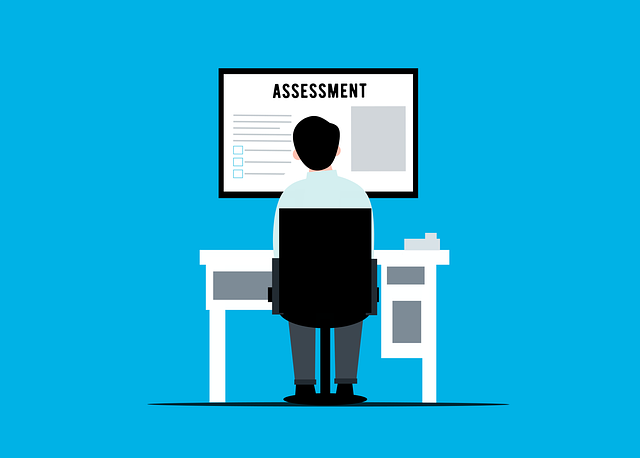Environmental Impact Assessments (EIAs) are crucial for balancing economic development and ecological preservation in the UK, where strict regulations demand rigorous EIAs. Professional translation services bridge language gaps and ensure these assessments meet regulatory standards by accurately navigating complex ecological terminology. Expert translators with environmental expertise streamline project approvals by providing accessible and understandable EIA reports, enhancing decision-making and environmental management. Choosing the right translation service for UK EIAs involves selecting providers with strong environmental documentation experience, certified translators, transparent quality guarantees, relevant sample work, and timely delivery without compromising accuracy or detail.
Are you navigating the complex world of UK environmental impact assessments (EIA)? As global projects demand cross-border collaboration, expert translation services are crucial for compliance and effective communication. This guide delves into the intricacies of EIA translations, exploring their global significance, the specific challenges within the UK context, and providing essential tips for selecting the right service to meet your project’s unique needs. From understanding assessment methodologies to ensuring regulatory adherence, discover how professional translation can facilitate successful environmental projects.
- Understanding Environmental Impact Assessments: A Global Perspective
- The Role of Professional Translation in UK EIA Compliance
- Key Challenges and Considerations in Translating EIA Reports
- How to Choose the Right Translation Service for Your UK Project
Understanding Environmental Impact Assessments: A Global Perspective

Environmental Impact Assessments (EIA) are a critical process that evaluates the potential effects of proposed projects on the natural environment. This global practice is essential for balancing economic development with ecological preservation, ensuring projects adhere to sustainability standards. EIA considers various factors, from biodiversity and habitat disruption to air and water quality changes, providing stakeholders with a comprehensive understanding of project implications.
In the UK, robust environmental regulations demand rigorous EIAs, making professional translation services crucial when dealing with international projects. Accurate translation ensures that these assessments are accessible and understandable across languages, facilitating informed decision-making processes. Translation experts with environmental expertise bridge language gaps, ensuring that UK’s stringent environmental standards are met and communicated effectively in global contexts, thereby streamlining project approvals.
The Role of Professional Translation in UK EIA Compliance

In the UK, environmental impact assessments (EIA) are a legal requirement for many development projects. Ensuring these reports are accurate and compliant with regulations is vital. This is where professional translation services play a crucial role. With language barriers and complex ecological terminology, expert translators can provide precise translations, guaranteeing that the EIA accurately conveys the project’s potential environmental effects.
Professional translation isn’t just about words; it involves understanding the unique ecological context of the UK and its regulations. Translators with specific expertise in environmental science and law can help avoid misunderstandings and ensure compliance. Accurate translation services for UK Environmental Impact Assessments not only facilitate smoother development processes but also contribute to better environmental management and decision-making.
Key Challenges and Considerations in Translating EIA Reports

Translating environmental impact assessment (EIA) reports requires a nuanced understanding of both the technical language and regulatory frameworks specific to the UK. Expert translation services play a crucial role in ensuring accuracy, consistency, and compliance with environmental reporting standards. One of the key challenges is navigating complex terminology related to ecological science, pollution control, and sustainable development, which often demands specialized knowledge.
Considerations for translators include staying abreast of evolving regulatory language and keeping pace with industry best practices. They must also bridge cultural gaps between source and target languages, ensuring that environmental concepts are conveyed accurately across different linguistic communities. This involves not just word-for-word translation but adapting content to align with the understanding and context of the intended audience.
How to Choose the Right Translation Service for Your UK Project

When selecting a translation service for your UK Environmental Impact Assessment (EIA), it’s crucial to consider several factors. Look for providers with expertise in environmental documentation, as they’ll understand technical jargon and specific regulations. Verify their experience handling EIA reports similar to yours, and check if they have professional translators certified or accredited by relevant bodies.
Reputable translation services should offer a transparent quality guarantee, ensuring accuracy and consistency. Request samples of their work and assess their understanding of your industry. Additionally, consider their turnaround times, especially if you’re working under tight deadlines. Opt for companies that can deliver high-quality translations promptly without compromising on detail or precision.
When navigating the complex landscape of UK environmental impact assessments, turning to expert translation services is vital. These specialized services ensure that reports are accurately and compliantly translated, enabling global communication and collaboration on sustainable development projects. By choosing the right translation partner, you can overcome linguistic barriers and foster a more inclusive, informed decision-making process for your UK initiative. Translation services for UK Environmental Impact Assessments play a crucial role in promoting sustainable practices worldwide.
